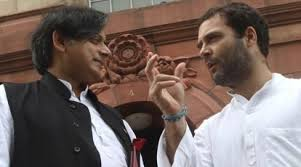This is a new era of 'the hard times' visited again at the global stage. This is an era wherein the only respected world body, the United Nations is losing clout.
About 40 countries including the US and China are behind in paying obligatory yearly dues.
The concept of collective responsibility for maintaining global peace and security is itself under threat.
The popular argument goes that the UN’s greatest achievement since 1945 is preventing a third world war.
Yet we believe the world s no longer safe. The World War-3 has already begun.
Russia and Israel are behaving like rogue states dismantling the world’s best defence against global anarchy.
The needless suffering cannot be kept away if a terror-sponsor Pakistan is not discouraged and checked from what it is doing. We have been doing the dirty job of the west - Pakistani Ministers kept stating during Operation Sindoor.
India, UK and other democracies face some pressing questions. Will they give in?
A world body without India at the UNSC is more of a mockery in this century.
The adverse fallout is potentially dangerous, pity and world-changing.
The UNICEF for infants and children and the World Food Programme (WFP) have been hit already.
Funding shortfalls for the world body is becoming an acute crisis in the shadow of Donald Trump’s review orders.
 |
| The fast 'collapsing' global body building |
It may be a small matter of satisfaction that India consistently pays its dues to the UN regular budget on time.
In contrast to 'delay' payments from countries like the United States, UK and China; with India -- the UN has at times been in arrears regarding payments to New Delhi for peacekeeping operations.
In 2019, the UN owed India $38 million for peacekeeping operations, which was the highest amount owed to any country according to a report by the UN Secretary-General.
India had expressed concerns about these delays in reimbursement.
For his part, Trump continues to issue threats vis-a-vis the world body funding.
Trump’s abolition of the US Agency for International Development (USAID), and scrapping of most aid programmes, has already badly damaged UN-led and UN-backed humanitarian operations.
The much talked about international rules-based order and multilateralism are under threat. Several countries say why they should pay.
It's worth noting that under Article 19 of the UN rules, a member state can lose its vote in the General Assembly if it owes dues exceeding the amount of two prior years' contributions, though exceptions can be made.
The US is the biggest contributor, at 22%, to the UN’s core budget.
In February 2025, the White House announced a six-month review of US membership of all international organisations, conventions and treaties, including the UN.
The deadline for decapitation falls next month, that is August 2025.
"The UN system has many failings, some self-inflicted. But a world without the UN would, for most people in most places, be more dangerous, hungrier, poorer, unhealthier and less sustainable," says Simon Tisdall in an article to 'The Guardian', London.
China and others, including the UK, ignore international law when it suits.
The number and longevity of conflicts worldwide is rising; UN envoys are sidelined; UN peacekeeping missions are disparaged. The security council is often paralysed by vetoes; the general assembly is largely powerless. By many measures, the UN isn’t working.
The UN is now almost allowed to fail or is so diminished that its agencies cannot fully function, there is nothing to take its place.
In the process, we have Gaza. An alleged 'law of the jungle' is at work and UN agencies are excluded, aid workers murdered and legal norms flouted.
 |
| Blogger |
Donald Trump is already boycotting the World Health Organization, the Palestinian relief agency (Unrwa) and the UN Human Rights Council, and has rescinded $4bn allocated to the UN climate fund.
He also claimed that all act contrary to US interests.
The impact is potentially world-changing. Key UN agencies in the firing line include the children’s fund, Unicef – at a time when the risks facing infants and children are daunting; the World Food Programme (WFP), which could lose 30% of its staff.
After the failure of the League of Nations, the UN was founded in 1945 to prevent further wars and help nations cooperate in tackling some of the major problems facing the world after World War II. When the UN was formed, it had 51 member states, which has since increased to 193.
Former US President Franklin D. Roosevelt coined the term 'United Nations'. Since then, the UN has remained the primary global organisation addressing issues that cross national borders and cannot be solved by one nation alone.
But some of the problems of the UN and its entire system are creation of the world body and the powerful lobby culture.
The UN is unable to represent the world today. UNSC has been woefully weak in confronting the wars in Ukraine, Gaza, and other conflicts around the globe.
Harping on the need to ‘synchronize’ in order to propel the idea of ‘One Earth, One Family’, PM Narendra Modi has hit out at United Nations and its relevance.
“Organizations like the United Nations came into being after the First World War, but they failed to evolve with the times, and this inability to adapt has sparked a global debate on their relevance”, PM Modi said in an interview to Lex Fridman.
ends





























